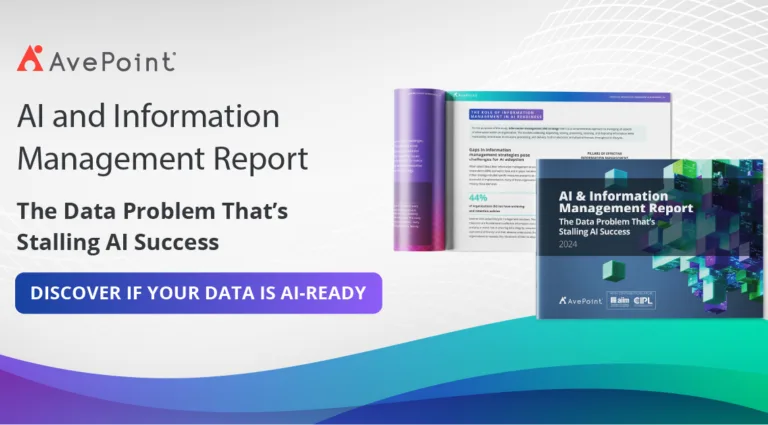Imagine hurtling down a complex trail on a bike without understanding the basics of balance. Sounds risky, right? Diving into AI without proper training isn't much different. Yet AvePoint's recent study reveals a concerning trend: more than half of companies are plunging into AI implementation without equipping their workforce with essential knowledge and skills.
This lack of organizational-wide training poses significant challenges, hindering the full potential of AI initiatives. In fact, a recent Gartner report found lack of knowledge and skills were the largest challenges facing generative AI.
Mastering the mechanics of AI is not just advisable - it's imperative. But merely understanding the basics of how to use it is no longer sufficient for organizational success; teams must delve deeper, grasping the underlying principles driving its outcomes.
Empowering Employees with Comprehensive AI Training
To empower employees with comprehensive AI training, organizations must adopt a multifaceted approach that addresses both the technical aspects and the broader implications of AI. At the core of this training should be a focus on developing AI literacy—an understanding of how AI systems function, their capabilities and limitations, and the potential risks and biases inherent in their design and implementation. Employees must grasp the mechanics behind AI decision-making processes to effectively interpret and apply the insights generated by these tools.
Training initiatives should also emphasize AI's real-world applications and use cases within the organization's context.
By providing practical, scenario-based learning experiences, employees can better understand how AI integrates into their specific roles and workflows, fostering a more seamless adoption and maximizing the value derived from these technologies.
Identifying power users can be valuable for uncovering these AI use cases and facilitating peer-to-peer training. These tech-savvy individuals not only unearth novel applications through their exploration but also serve as champions, offering hands-on guidance to colleagues and addressing any resistance to adoption.
Tracking usage trends and adoption metrics can further refine training efforts. Leveraging these insights, organizations can tailor programs to address specific needs and challenges within their workforce. For example, if tracking reveals that AI is underutilized in certain departments, additional tailored training can be provided to these teams. This iterative process allows for refinement and optimization based on real-world experiences.
Beyond technical functionalities, comprehensive AI training must also emphasize ethical considerations and responsible AI usage. Employees should be equipped with a robust ethical framework to navigate the complexities inherent in AI deployment, ensuring alignment with organizational values and societal norms. Establishing clear AI Acceptable Use policies can provide a valuable reference, offering employees well-defined principles and guidelines to consult when confronting ethical dilemmas or ambiguities not explicitly covered during training. By including ethical training as part of comprehensive AI programs, employers can leverage these transformative technologies while maintaining integrity and accountability.
The lack of standardized procedures for AI adoption underscores the importance of comprehensive, organization-specific training programs tailored to unique objectives, needs, and culture. By investing in their workforce development and following a structured approach, organizations can cultivate a skilled, critical-thinking, and responsible AI practitioner workforce, maximizing the success of their AI initiatives and driving sustainable growth.
Kick-start your AI journey: Microsoft 365 Copilot: A Step-by-Step Guide to Secure AI Adoption
The Role of Information Literacy in AI Success
Understanding the mechanics of AI is essential, but delving deeper into its underlying principles is equally crucial for successful usage. As AI increasingly handles generative tasks, human involvement shifts towards integrating AI output effectively, requiring not just technical proficiency but also expertise and judgment. This integration forms the backbone of successful AI utilization, ensuring that decisions are grounded in both data-driven insights and contextual understanding.
In this landscape, information literacy emerges as a critical component. Information literacy, as defined by the Association for Intelligent Information Management, encompasses an understanding of the entire information lifecycle and its strategic importance in achieving business objectives. According to Harvard Business Review, 90% of business leaders cite data literacy as key to company success.
By fostering information literacy among employees, organizations equip individuals with the ability to identify information needs, critically evaluate information quality and integrity, extract valuable insights, and ensure information compliance with governance policies. It empowers employees to discern between accurate information and AI biases, preventing erroneous output from influencing decision-making processes.
Consider this scenario: a new marketing team member is tasked with analyzing customer data using AI to inform advertising campaigns. Without a strong foundation in information literacy, they may lack the skills to evaluate AI-generated insights critically. As a result, they might unknowingly rely on outdated messaging and slogans or inadvertently base their decisions on another region’s demographic information, leading to ineffective marketing strategies.
Without the ability to question and validate the information provided by AI, employees risk making decisions based on inaccurate or obsolete data, ultimately undermining the success of their initiatives.
Empowering users with information literacy skills not only serves as a safeguard against the proliferation of inaccurate information but also ensures that AI-driven insights align with organizational goals. By integrating information literacy training into AI education programs, organizations can foster a culture of responsible AI usage, where employees are adept at leveraging AI-generated insights while remaining vigilant against potential biases and inaccuracies, thereby maximizing the effectiveness of AI initiatives.
Drive Success with AI Education
For AI to truly drive organizational success, it cannot remain confined to the IT department. It needs to permeate every aspect of the organization, from marketing to support services. Yet employees won't inherently know how to leverage AI effectively; they require in-depth understanding and hands-on experience to harness its full potential.
The AI & Information Management Report revealed that survey respondents plan to allocate a significant portion of the AI budget, up to 40%, towards training employees in AI competencies. This investment reflects the recognition of the pivotal role employees play in directly interacting with AI tools and leveraging their outputs independently.
However, the mere allocation of resources is not enough; organizations must strategically utilize these funds to craft comprehensive training initiatives that foster a culture of AI proficiency and responsible information use. By investing in comprehensive AI and information literacy training, organizations empower their employees to utilize AI tools safely and effectively and mitigate the risks associated with biased or inaccurate output.
The success of your AI investments is in your hands; it’s up to you to build enablement programs that equip teams with the knowledge and skills necessary to make the most of these transformative technologies. While the path may be challenging, dedication and strategic investment in education can navigate the complexities of AI adoption, paving the way for sustainable success and a future-ready workforce.





